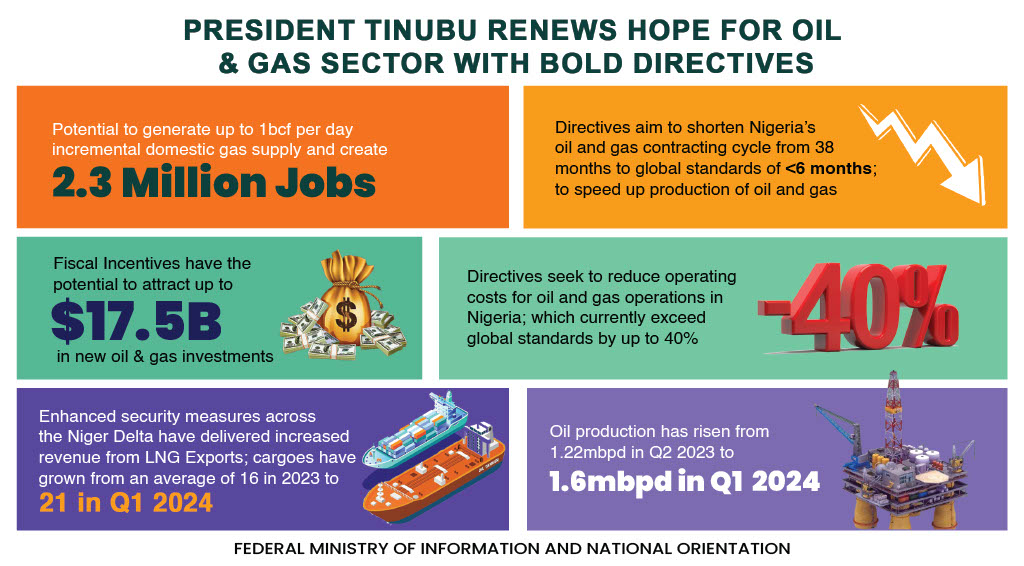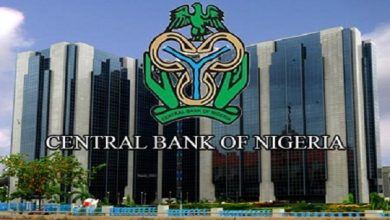Banking Recapitalisation: Leveraging Better Financial Stability For Stronger Economy

No doubt ,March 28, 2024, witnessed a momentous event in the Nigerian banking sector . The Governor of the Central Bank of Nigeria ,CBN, Olayemi Cardoso ,announced to the banks his recapitalization initiative , a clear signal and move to reposition the industry for better financial intermediation that will consequently be leveraged by this administration’ to achieve its goal of stronger economy .
Details of the Initiative
The fresh capital hurdles were disclosed in a circular addressed to commercial, merchant, and non-interest banks and promoters of proposed banks, which was signed by the CBN Director, Financial Policy and Regulation Department, Mr. Haruna Mustafa.
In clear term, the apex directed the banks to upgrade their capital base to new minimum capital requirements of N500 billion and N200 billion for commercial banks with international and national authorisation respectively. It further unveiled a new capital base of N50 billion for banks with regional licenses and pegged the new minimum capital for merchant banks at N50 billion, while non-interest banks with national and regional authorisations were mandated to raise their capital thresholds to N20 billion and N10 billion, respectively ;It gave the banks up till March 31, 2026 to fully comply with the new capital requirements.
The CBN urged the banks to consider injecting fresh equity capital through private placements, rights issues and/or offers for subscription; mergers and acquisitions (M&As); and/or upgrade or downgrade of license authorisation to enable them to meet the new capital requirements.
Furthermore, the circular disclosed that the minimum capital shall comprise paid-up capital and share premium only, adding that the new capital base shall not be based on the shareholders’ fund just as the additional Tier 1 (AT1) capital shall not be eligible for meeting the new capital threshold
Stakeholders welcome the Initiative as overdue.
Except for the controversy that trailed the change in the composition of capital that differs from the usual in the sense that the banks’ retained earnings are excluded ,the move which is long overdue is overwhelmingly believed to be a right step in a right direction. In essence, the announcement didn’t catch the banks napping as this had already been foretold. Moreover , the CBN raised the minimum capital base for banks with international authorization
Good For Better Financial Stability,Stronger Economy.
The acceptance of the new initiative may not be farfetched as both the banks and economy stand to reap bountifully from its success.
The first school, advocating for the CBN’s capital raise, sees it as a timely and necessary step. They argue that scaling up banks’ common equity tier 1 (CET1) capital can bolster the economy, leading to faster-paced economic growth. This, in turn, could result in more credit availability at lower costs, thereby creating a boon for businesses and households alike.
The argument is that as banks increase capital, they raise their capital adequacy ratio and liquidity, increase their ability to lend and invest in research and development (fintech, artificial intelligence/ machine learning (AI/ML), and risk-protection methodologies), and improve their support for customer transaction experiences.
The school’s stronger voices insist that ‘to sustain financial system stability banks require a strong capital base, and adequate liquidity to build depositor trust.
The overall aim of the recapitalisation is to ensure that Nigerian banks have the capacity to take bigger risks and stay afloat in times of trouble, support different sectors of the economy, and improve confidence in the banking system ;it also means increased liquidity in the banking sector, lower lending rates in the medium to long term., stronger ability to absorb loan losses and withstand economic shocks.
Moreover , a larger capital base will enable banks to underwrite bigger levels of credit in the economy and ultimately generate higher income. The new single obligor limit based on the new capital will enable banks to finance larger ticket transactions.
Though it will lead to a potential increase in the cost of capital due to the higher cost of equity capital relative to debt, however banks that work harder to ensure that the capital raised is deployed in profitable opportunities could create better value for investors. The recapitalisation will reposition the banks to be more efficient, resulting in increased capacity.
To some observers , the initiative would help strengthen the country’s financial system and potentially boost the stock market. One of them said: “In view of naira devaluation following unification of exchange rates, the newly calibrated minimum capital requirements seem okay unlike the uniform capital base of N25 billion stipulated in 2005.
For the economy, analysts believed a stronger financial system will provide great support for the Nigerian economy as it works towards evolving into a $1.0tn economy in 2030.The Central Bank had stated that the purpose of raising capital is to “engender the emergence of stronger, healthier and more resilient banks to support the achievement of a US$1 trillion economy by the year 2030” in line with the Renewed Hope agenda of the Tinubu administration
In addition, banks’ recapitalization is intended to boost their capacity to support economic growth and address asset quality issues as well as enhance their competitive position
Also given the estimated required additional capital for banks (N3.3tn), the banks will have to attract foreign portfolio & direct investors to invest in the capital raise. This will increase FX liquidity in the economy and ultimately support naira stability.
It also has the tendency to increase in business activities as it will help the banks to expand their lending in the medium to long term particularly to the SMEs space, which has enjoyed minimal support from the commercial banks; it is now likely to benefit from loans expansion driven by recapitalization .
Since Equity capital raises involve several stakeholders in the capital market, including investment bankers, regulators, solicitors, and so on ,the initiative is expected to increase the business for capital market players in terms of improved earnings from fees from the capital raise
The move is also determined to enhance banks’ financial stability, improve risk management, maintain confidence of the financial system, as well as enhance compliance with regulatory authorities
Reacting to the drive to boost banks’ capital thresholds, analysts who spoke to this medium applauded the apex bank’s policy . One of them described the move as a step in the right direction. “I believe it is the right move by the CBN. I have always been of the opinion that despite the size of the Nigerian economy, our banks do not have the capacity to really drive the economy to exponential growth”, he declared.
The Association of Corporate & Marketing Communication Professionals of Banks (ACAMB) also gave kudos to the CBN over the initiative. In a statement signed by Rasheed Bolarinwa, ACAMB’s president on Monday, the association said the recapitalisation will put Nigerian banks in a better position to support the strengthening of the economy and the expansion of the real sector. The Association of Corporate & Marketing Communication Professionals of Banks (ACAMB) says recapitalisation will help banks grow Nigeria’s economy.
“The import of the recapitalisation announced is that Nigerian banks are safe and reliable but the apex bank, in its developmental mandate, is leading the banks to strengthen their capacities to meet competitive domestic and global financial needs,” ACAMB said.
“This recapitalisation will put Nigerian banks in better stead to support the strengthening of the economy; the expansion of the real sector, and the building of bigger banking brands that can compete continentally and globally.
“As Nigeria seeks to aggressively unlock its innate potential to become a global emerging economy, banks must also stand ready to play their crucial roles of financial intermediation.
The Managing Director of Cowry Assets, Mr. Johnson Chukwu, at a 2023 event to launch Proshare Nigeria LLC’s second Tier 1 Bank Report, observed that ‘Nigeria’s ticket value for bank transactions have increased over the last few months because of the steady depreciation of the naira. The depreciation of the naira has meant that midsized banks are slowly crowded out of foreign trade finance and lending.’
According to Chukwu, ‘if banks are to improve their lending capacity, they need to strengthen the equity capital side of their balance sheets, which would support their ability to withstand economic or market shocks’. A few other financial analysts support Chukwu’s view. They believe that raising the capital of Nigerian banks has been slightly overdue and that with the recent depreciation of the naira, it would be necessary to reassess the size of Nigeria’s bank capital.
A recent commentator who requested anonymity said, ‘Banks need the wind under their wings. Fresh capital injection builds confidence in the sector and gives banks a wider range of business opportunities, which translates into real sector growth.’
Another analyst observed that despite the fact that Nigerian banks are part of the most profitable institutions on the continent and have consistently made profits during numerous economic downturns in Nigeria , they are still not pulling the expected weight in terms of capital in Africa.
For instance ,as of December 2022 figures, he said , no Nigerian bank features in the top 10 largest banks in Africa based on Tier 1 Capital.
For example , the asset size of the Standard Bank Group of South Africa at $170 billion is more than the total asset size of all Nigerian Deposit Money banks at $140 billion. Again, no Nigerian bank is ranked between first to 10 in size of both assets and capital base in Africa.
“According to him the Naira devaluation would likely see Nigerian banks drop even further in 2023 numbers. The implications of this are that there are certain transaction ticket sizes that are beyond the capacity of Nigerian banks to fund even with syndication.”
Moreover , some analysts explained that the Nigerian economy is vastly untapped, and without strong, well capitalised financial institutions, it will be tough to grow the economy beyond its current limitations.” “Our country is overdue for a capital raise for banks. The reason is that the depreciation of the Naira eroded the value of the capital base of Nigeria banks .
The recapitalisation of banks in categories is long overdue and advocated for the expansion of our economy. Moreover , the Tier 1 banks operating internationally have already envisaged this process and have started making provisions early enough. Furthermore , “Nigeria has the highest GDP in Africa and for us to maintain that position and also operate a trillion-dollar economy then the banks must be adequately capitalised. “A trillion-dollar economy must have local capacity to initiate and execute million dollar transactions locally without foreign intervention in key areas of development like oil and gas, steel production, mining, mega construction projects and Public Private Partnerships with the government.”, another analyst declared .
He said: “This can only materialise if we have adequately capitalised banks that can rise to the occasion. Asides the above justifications , another thing is that Nigerian banks also need to take their pride of place in Africa as regards capitalisation because presently Nigerian banks are not among the most capitalized in Africa. Therefore, this new recapitalisation policy will adequately position our banks for the emerging economy that will adequately equip them to take on large ticket transactions in Nigeria and African continent.
The foregoing answers the question of whether the new capital regime of banks is justified. It will enable Nigerian banks to expand their capacity and business frontiers to grow our economy.”“I am of the strong opinion that recapitalisation will strengthen and enlarge our economy because of the critical roles our banks the economy” ,he added .
Concerning the timing , analysts believed the time frame is adequate for most of the international and national bank categories to adequately recapitalise.
To achieve the new minimum , analysts explained the banks “ can explore various options to raise transparent and legitimate funds from the Nigeria stock exchange, private placements or through mergers and acquisitions.
The Central Bank contends that larger banks with substantial capital bases are essential, as they can offer more significant levels of credit. This capacity is deemed critical to facilitating and accelerating the growth of the national economy.
Olayemi Cardoso, during his policy direction speech at a bankers’ dinner event said considering the policy imperatives and the projected economic growth, it is crucial for us to evaluate the adequacy of our banking industry to serve the envisioned larger economy.
According to him , it is not just about the stability of the financial system in the present moment, as CBN had already established that the current assessment shows stability.
Further justifying the step taken by the CBN, Cardoso noted : “however, we need to ask ourselves: Will Nigerian banks have sufficient capital relative to the financial system’s needs in servicing a $1.0 trillion economy in the near future? In my opinion, the answer is “No!” unless we take action. Therefore, we must make difficult decisions regarding capital adequacy. As a first step, we will be directing banks to increase their capital”
The governor’s view may not be farfetched. Capital adequacy is extremely crucial for a financial institution (in fact, having robust capital levels is crucial for any kind of busines) . Because banks are important institutions in the economy, given the financial intermediary role they play between individuals/investors and businesses , the financial health of a bank has to be sound. If the economy must grow, then the banking system that serves as a facilitator of that growth must be up to the task.
For banks to fund larger tickets and give bigger loans that will drive concrete economic growth, they have to be well-capitalised.
Other potential benefits could be: Increased liquidity in the banking sector that could lower lending rates in the future ,potential dilution of bank ownership, which may translate to enhanced corporate governance ,improved depositor confidence ,enhanced economies of scale enjoyed by banks, thus potentially leading to reduced bank charges to customers and potential inflow of foreign direct investment (FDI)T
As the above narrative is interesting but not shared by all. A member of the contrarian school notes that it is not just about the monetary system alone…economic development is not, and has never been a function of huge bank capital – NO!…in fact what capital bloating does is to fuel greater daring misgovernance and criminal tendencies amongst the industry oligarchs!…is this now-decrepit AMCON, not enough proof that we’re yet to get out of the problems precipitated by the last rounds of recapitalisation
He observed that ‘Economic development depends on a robust financial system, including all four channels, of which the investment channel (in the capital market) is most important!!! But where is the SEC, for God’s sake The point is that banks should not be squeezed into unethical practices to fund new equity requirements.
The Only Threat The newly announced recapitalisation of Nigeria’s banking sector could boost lending in the country’s economy and strengthen lenders’ regional and international competitiveness in the medium term, even as the new requirements may put pressure on smaller lenders to seek mergers, according to experts In a research paper written in 2015 on the impact of bank recapitalisation on economic growth, Natalya Martynova of De Nederlandsche Bank in the Netherlands produced a research paper that suggests that larger bank capital does not necessarily translate to faster growth and development. In fact, in some instances, the opposite is the case. Martynova noted that ‘Banks facing higher capital requirements can reduce credit supply and decrease credit demand by raising lending rates, which may slow down economic growth.
However, having better-capitalized banks enhances financial stability by reducing bank risk-taking incentives and increasing banks’ buffers against losses’. According to the researcher, ‘The most popular argument for Basel III is that higher bank capital promotes financial stability. Financial stability will be enhanced by: (1) reducing the probability of banks’ financial distress; and (2) minimizing banks’ losses given default. Capital regulation affects financial stability by reducing ex-ante incentives of banks to take risk and higher capital acts ex-post as a buffer against bank losses.’ In plain language, higher capital should reduce banks’ risk, and even where a bank has bad loans, it has adequate capital to protect its books.
The only threat is the potential rise in unemployment rate that could be an unintended consequence of the banking recapitalisation. This is because the Nigerian banking sector is one of the major employers of labour.
The last time a bank recapitalisation took place (in 2004/2005), 89 banks shrank to 25. Although the overall economy was probably better-off, the associated job losses were painful. It is even more worrisome at this time when the economy is feeling the heat of the outcome of economic mismanagement in prior years.
RETAINED EARNINGS
The CBN’s decision to raise bank capital has sparked a lively debate with two distinct tendencies. This clash of commercial and intellectual interests adds an intriguing dimension to the discussion, inviting further analysis. While one class of analysts argued that the CBN should have allowed banks to use their retained earnings as part of the capital raise exercise, the second disagreed
MEANING OF PAID UP CAPITAL AND RETAINED EARNINGS
While the Paid-up capital is the nominal value of shares issued by bank (mostly pegged at 5 kobo per share) and paid for by shareholders, the Share Premium is the difference between what the shareholders paid for each share and the nominal value of each share.
However, the retained income of banks is profit which was not distributed to shareholders.
RETAINED EARNINGS OF EACH BANK
Xxx Findings show that the top five banks and bank holding companies, have retained incomes of N3.39 trillion, which represents 88 per cent of the combined retained income of the top ten banks. Based on their latest financial statements, the retained income of the top banks are: Zenith Bank with N893.9 billion; UBA, N750 billion; Access Corporation, parent company of Access Bank, N715.13 billion; and FBN Holdings, parent company of FirstBank, N608 billion. If the new policy had not excluded retained earnings, these four banks would have been sitting comfortably above the policy threshold, while GTHoldco, the parent company of GTBank, at N424 billion, would also be on the verge of meeting the threshold. Other banks with significantly high retained earnings are Union Bank, N147.88 billion; Fidelity Bank, N115.8 billion; and FCMB Group, owners of First City Monument Bank with N110.1 billion.
Protagonists argue that the proportion of retained bank earnings used to fund bonuses or scrip equity should be taken as part of a bank’s share or CET1 capital. According to one corporate finance head presently working for a Lagos-based Investment Bank, ‘If we would use a bank’s retained earnings to calculate its sustainable growth rate (SGR), it is difficult to explain why the capitalisation of these accrued earnings should not be accommodated as part of its tier 1 capital. Telling a diver to go Fifty feet under without his diving gear is either an attempt at murder or the decision was that of the diver, a desire to omit suicide; either outcome would be undesirable. Likewise, not allowing bank shareholders to benefit from the undistributed net earnings of their banks by bonus share Issue is curious at best and unconscionable at worse.’
Chukwu expressed disagreement, deeming it a mistake. He argued that retained earnings represent distributable income, which could be utilized for dividends or shareholder reinvestment through rights issues. Chukwu proposed that including retained earnings could mitigate the need for banks to resort to special dividends followed by rights issues, thus streamlining the recapitalization process.
Faulting the decision of the CBN to exclude the huge retained income of banks from the minimum capital requirements, a Chartered Accountant and the Managing Partner of Ecovs OUC Nigeria, Andrew Uviase, said: “I don’t think it is fair because if someone have money and he is not using it, then why will you prevent the person from using it, the retained earnings to meet arising obligation?. It is not fair.
The regulator’s decision, therefore, makes it harder for banks to meet the new minimum bank capital requirements.
CBN ABIDES BY THE LAW
Those with a contrary view argue that the CBN was going down the right alley by insisting that banks bring new capital to support future operations by growing their loan books but derisking their statements of financial position by building stronger equity buffers. ‘If you are a big bank, your shareholders should put their money where their mouths are by stumping up more cash. The capital raise would reinforce confidence in the financial lender, support larger loan portfolios, and announce such institution as a serious player on a continent
impatient for growth and development’ Nevertheless, the decision is in line with Proshare’s earlier observation that while the banks had shareholders’ funds in multiples of N25bn minimum paid-up capital prescribed by the Bank and Other Financial Institutions Act (BOFIA) 2020, none of the tier 1 banks in Proshare’s last Tier 1 Banks Report had a share capital of N25bn. In other words, banks continuously ignored the law, and the CBN turned a blind eye.
Section 9 subsection (1) and (2) of the BOFIA 2020 notes as follows:
The Bank shall determine the minimum paid-up share capital requirement of each category of banks licensed under this Act, which shall be complied with by each bank within the time prescribed by the Bank
Failure to comply with the provisions of subsection (1) within such a period as may be determined by the Bank is a ground for the revocation of any license issued under this Act or any other Act repealed by it.
The Act previously prescribed a minimum share capital base of N25bn for all deposit money commercial banks, but notably, shareholders’ Funds were several times the size of banks’ share capital; banks were allowed to continue business without regulatory penalties despite their shortfalls. Analysts have noted that this order is about to end. With the CBN insisting that banks bring fresh capital to meet the new minimum.
Both schools have strong advocates, but the issue is that the CBN’s priority is the inflow of foreign currency and the strengthening of CET1 capital uninfluenced by retained earnings to encourage a shift away from accounting practices that do not lead to an inflow of new equity capital. A commentator who requested anonymity said, ‘The CBN is working on a gamble like a trifecta bet in horse racing, or amounts to an attempt at making winnings across multiple outcomes. The regulator wants to improve bank capital, strengthen the exchange rate and reduce banking sector vulnerability to shocks in that order’
.








